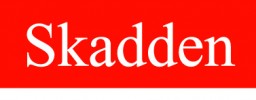In Thomson Reuters v. Ross Intelligence, 1 a district court largely denied the parties’ cross motions for summary judgment and held that a number of factual issues must be decided by a jury.
– The decision provides some insight into how courts might address the complex issue of whether the use of copyrighted works to train artificial intelligence systems constitutes copyright infringement and, if so, the viability of a fair use defense.
– Filed in 2020, long before the recent spate of similar cases,2 Thomson Reuters is likely to be the first to go to trial on a critical legal issue in the development of AI systems.
– The main works at issue — Westlaw headnotes that summarize points of law from public domain court decisions — enjoy only narrow copyright protection.
– While the case may have limited precedential value for other “training data” cases where the works at issue enjoy broader copyright protection, it may still frame future discussions and company practices.
– The case also exemplifies how content owners may rely on their contractual rights when bringing claims concerning the unauthorized use of data for AI training purposes.
Background
Defendant Ross Intelligence, Inc. sought to develop a legal research tool that would output judicial opinion language in response to natural language queries.
Ross hired a third party, LegalEase Solutions, to create memos with model question and answer pairings (referred to as Bulk Memos) to train the AI engine driving Ross’ platform. LegalEase, in turn, created the Bulk Memos by using the headnotes that Thomson Reuters provides with published court opinions on its Westlaw platform. Headnotes are summaries of the key legal points in an opinion, and can either be a direct quote of the opinion or include some Westlaw original expression. LegalEase held a license to use Westlaw







